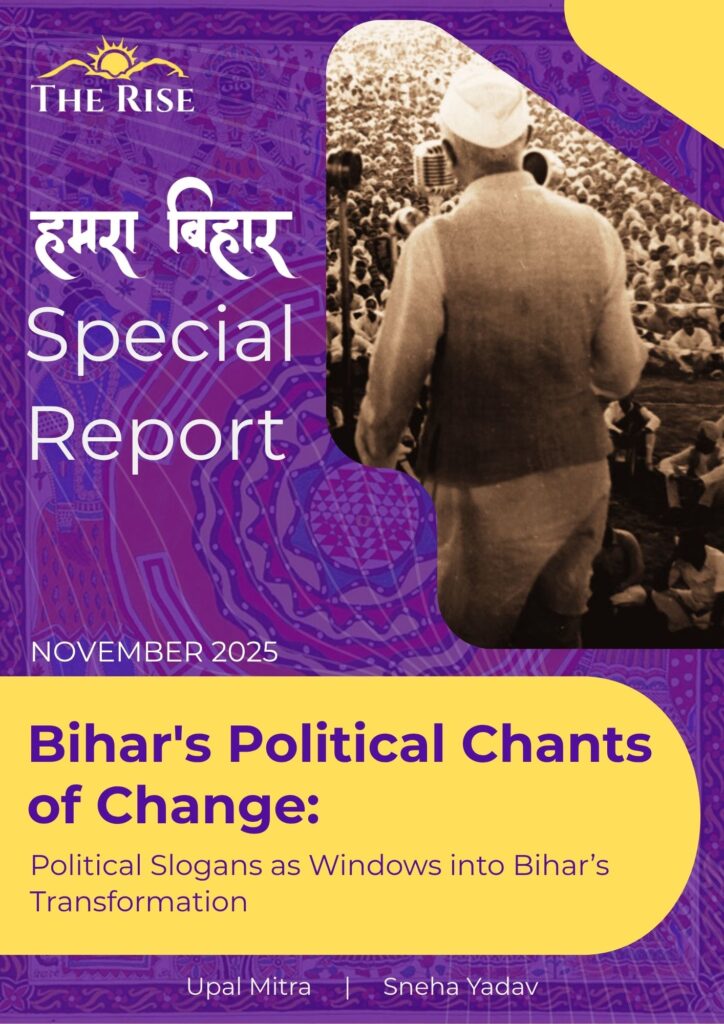
Over five decades, Bihar’s political slogans have mirrored deep transformations in governance, caste relations, economic aspirations, and identity politics. This report explores how these slogans have functioned as powerful expressions of Bihar’s evolving social consciousness and political imagination, tracing these changes across four key stages.
The period from the 1970s to the 1990s marked the decline of the Congress’ hegemony and the rise of backward caste assertion. “Sampoorna Kranti” by Jayaprakash Narayan demanded moral and systematic revolution but unintentionally opened up the political space for caste-based mobilization. The demand for representation, incorporated into the political grammar of Bihar through Karpoori Thakur’s slogan “Pichchda pave sau mein saath” transformed these moral appeals into the demands for social inclusion and representation.
The 1990s to 2000s witnessed the consolidation of identity politics under Lalu Prasad Yadav. Slogans such as “Bhura baal Saaf Karo” and “Jab tak rahega samose mein aaloo, tab tak rahega Bihar mein Lalu” changed the definition of leadership into one of subaltern pride and cultural intimacy. Politics was now seen as a manifestation of vernacular populism, prioritizing dignity over development and legitimizing new caste orders of authority and informal rule.
With the rise of Nitish Kumar, Bihar’s discourse underwent a paradigm shift towards governance and reform. The ‘Sushasan vs Jungle Raj’ narrative portrayed Bihar’s transformation as a moral shift—from a state of disorder to one of law and stability. However, this redefinition also diluted the idea of social justice, turning deep-rooted inequalities into matters of administrative efficiency rather than structural change.
In recent years, the intersection of nationalism and local grievance has defined Bihar’s political language. “Atmanirbhar Bharat” reflects a nationalized vision of self-sufficiency, while “Bihar Mein Ka Ba” captures youth frustration, reverse migration, and disillusionment with elite models of development. Although the vocabulary has shifted—from kranti to vikas—the struggles for dignity, equality, and livelihood continue to anchor Bihar’s political imagination.
Get a hard copy delivered at your doorstep:
Terms & Conditions:
- Order cancellation procedure: Mail at support@therise.co.in requesting order cancellation with a valid reason within the first 24 hours of order placement. The payment receipt must be mandatorily attached, without which no order cancellation request will be entertained.
- Returns/Replacement: No return/replacement is possible
- Refunds: The complete amount is refundable if the order cancellation request is received at support@therise.co.in within the first 24 hours of the order placement. Refund will be issued in 5-7 working days.
